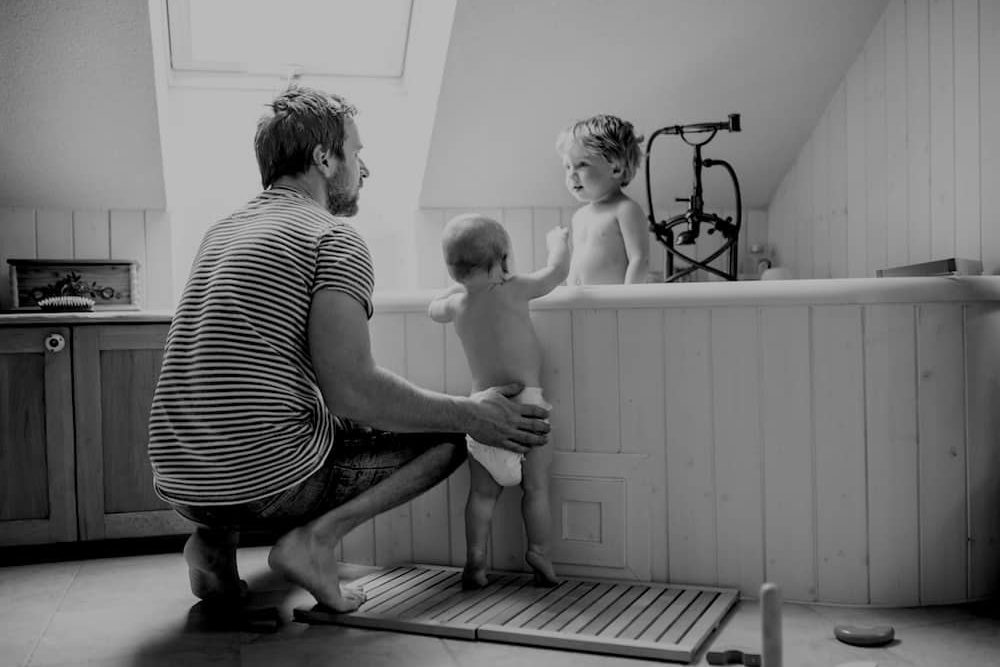There are now numerous ways to resolve property settlement mediation without having to go to court. For example, Australian courts make mediation a mandatory step in the litigation process. The reason for this is that judicial officers in family law jurisdictions have long argued that court intervention should only ever be the last resort and only for those matters with significant complexities.
What are the Alternatives to Family Law Litigation
There are a number of ways that you and your ex-partner can resolve your family law disputes. Typically though, most people have been trained to believe that any type of dispute requires legal intervention. This is a mistake that leads people to be tied up in lengthy litigation that is both emotionally and financially draining.
Here are some of the ways that you can resolve family law disputes that can be handled without litigation.
Collaborative Law
This form of dispute resolution is predicated on the basis that you and your ex-partner sign an agreement that you both agree to negotiate a settlement without going to court. This is an important distinction because other types of dispute resolution still allow a window of opportunity for court intervention if the negotiation fails.
In collaborative law, litigation has been removed from the range of possibilities. That’s not to say that you or your ex-partner can later elect to abandon the collaborative process and go to court, but importantly, the family disputes lawyer who represents you and your ex-partner in the process cannot. This characteristic is very important as in the event that you wish to abandon the process, you and your ex-partner will need to instruct a new lawyer, which goes without saying can be considerably expensive, not to mention the delays in bringing these lawyers up to speed.
Collaborative law is a very effective way of dealing with family law dispute mediation because of its unique features. Taking off the table the option of court intervention brings a significant degree of focus on you, your ex-partner, and your lawyers to resolve the matter promptly. A collaborative law process usually takes up to 3 months to bring about resolution, as opposed to up to 3.5 years for the alternative, litigation.
Mediation
Mediation is widely accepted as a very effective and cost-efficient way of resolving family law disputes and is mandated by courts, not only in family law, as a very early step in the litigation process.
Simply put, mediation is a structured negotiation process in which an independent person (the mediator) will assist you and your ex-partner identify and assess options for resolution and negotiate an agreement, following which it can become legally binding.
The key characteristic of mediation is that time is of the essence. The mediation will typically go for one day which brings a sense of urgency to resolve family law dispute matters which can prove to be very effective.
Obviously, a mediation is substantially less expensive than the alternative of going to court. The mediation will cost between $2,500 and $5,000 depending upon the complexity as opposed to $125,000 upwards if your matter is complex. (Please note that research has found that the longer family law disputes linger the worse they get).
Arbitration
Basically, Arbitration is the closest to court intervention out of all the alternative options to litigation. It has been explained metaphorically as choosing a private hospital, as opposed to a public hospital, where you choose your own specialists.
Arbitration allows you and your ex-partner to not only choose those that will assist and ultimately adjudicate on the issues in dispute, but you’re able to design the process.
Arbitrations typically run just like a trial would run in a family court. For example, written evidence is filed, followed by an oral examination of you and your ex-partner and your witnesses. Usually, you and your ex-partner will be represented by barristers and your instructing solicitor. Like a court, your Barrister will deliver their arguments to the arbitrator at the conclusion of the evidence and the complete proceedings are recorded in the event that you or your ex-partner’s lawyers require a transcript.
Importantly, Arbitration is only available for property-related disputes and not parenting or children’s matters.
The Family Law Act specifically deals with Arbitration in Sections 10L, 10M, 10N, and 10P.
Section 10L provides the following definition of Arbitration:
(1) Arbitration is a process (other than the judicial process) in which parties to a dispute present arguments and evidence to an arbitrator, who makes a determination to resolve the dispute.
Section 10P confirms the immunity of arbitrators:
An arbitrator has, in performing his or her functions as an arbitrator, the same protection and immunity as a Judge of the Family Court has in performing the functions of a Judge.
Further, Regulation 67S of the Family Law Regulations 1984 ensures that an Arbitrator’s award can be enforced as if it were an order:
A party to a registered award may apply for enforcement of the award as if the award were an order made under Part VIII of the Act.
Before hanging up a shingle proclaiming to be an Arbitrator, practitioners considering life as Brisbane’s next gun Arbitrator should read the Family Law Regulations 1984.
Specifically, Regulation 67B sets out the prescribed requirements for an arbitrator (also referred to in Section 10M of the Act):
For the definition of the arbitrator in section 10M of the Act, a person meets the requirements for an arbitrator if:
(a) the person is a legal practitioner; and
(b) either:
(i) the person is accredited as a family law specialist by a State or Territory legal professional body; or
(ii) the person has practised as a legal practitioner for at least 5 years and at least 25% of the work done by the person in that time was in relation to family law matters; and
(c) the person has completed specialist arbitration training conducted by a tertiary institution or a professional association of arbitrators; and
(d) the person’s name is included in a list, kept by the Law Council of Australia or by a body nominated by the Law Council of Australia, of legal practitioners who are prepared to provide arbitration services under the Act.
FAQs
How does family law work in Australia?
Family law in Australia is primarily governed by the Family Law Act 1975, which applies nationwide. It covers matters such as divorce, property settlements, and parenting arrangements. The system encourages alternative dispute resolution methods like family law mediation before resorting to court proceedings.
What is the new Family Law Act in Australia?
There isn’t a new Family Law Act, but the existing Act is regularly amended. The most recent significant changes were implemented through the Family Law Rules 2021, which aim to streamline processes and promote more efficient resolution of family law matters.
Is family law the same in all states in Australia?
Family law is largely consistent across Australia due to the federal Family Law Act 1975. However, Western Australia is unique in having its own Family Court, which applies the federal Act with some state-specific variations.
At what age can a child refuse to see a parent in Australia?
There’s no set age in Australian family law where a child can refuse to see a parent. The Family Law Act 1975 emphasizes the best interests of the child, and courts consider the child’s wishes in light of their age and maturity.
What age can a child decide who to live with in Australia?
There’s no specific age when a child can decide. The Family Law Rules 2021 guide how children’s views are considered, but the court always prioritizes the child’s best interests over their preferences alone.
Does each state in Australia have different laws?
While most family law is federal, states have different laws in areas like child protection and domestic violence. Family law mediation processes may also vary slightly between states.
Do all states in Australia have the same child protection laws?
No, child protection laws are state-based and can differ. However, all states aim to protect children’s welfare, and these laws interact with the federal Family Law Act 1975 when necessary.
Why is family law different in WA?
Western Australia is unique because it has its own Family Court, established under state legislation. This allows WA to tailor some aspects of family law to its specific needs while still operating within the framework of the federal Family Law Act 1975.
Which state in Australia has its own Family Court?
Western Australia is the only state with its own Family Court. This court applies the Family Law Act 1975 and can also deal with state family law matters, providing a more integrated approach to family law issues in WA.
What Should You Do Next
Simply contact our Melbourne, Perth, Sydney, and Brisbane Mediators for a free no-obligation chat to learn more about how we might be able to assist you.










